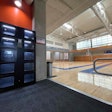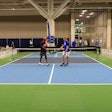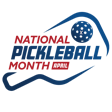Source: Sports Legacy Group
(NEW ORLEANS) - The Sports Legacy Institute (SLI), a Boston-based non-profit organization founded by Robert Cantu, MD, and Chris Nowinski, is calling for state high school athletic associations to ban full-contact practices in the offseason.
Matt Birk of the Baltimore Ravens, Matt Hasselbeck of the Tennessee Titans, and former players Ted Johnson, Kevin Turner, Kyle Turley, Hunter Hillenmeyer, and Isaiah Kacyvenski joined SLI executive director Nowinski at a press conference today at the Super Bowl XLVII Media Center. The goal: to reduce the risk of concussions and Chronic Traumatic Encephalopathy (CTE), a degenerative brain disease recently found by Boston University researchers in six deceased former high school football players, one only 17 years old.
"Last year the NFL Players Association and NFL agreed to limit brain trauma by having zero offseason full-contact hitting practices and less than one per week during the season. The only reason it's not the same way in high school is that players cannot negotiate - they have no voice. We are here to lend our voice for these young men," Hasselbeck said.
"Earlier this week President Obama stated his concerns about the safety of football at the college level. Unfortunately, our focus should really be on youth and high school players, who have no protection and are too young to have informed consent," added Nowinski, SLI executive director.
SLI research found that no state association sets any limits to in-season full-contact days, and at least 29 state athletic associations currently allow full-contact practices during the offseason, either in the spring or summer. Texas allows 30 days, Illinois 20 days, Florida 17 days, and Wyoming 14 days. In stark contrast, the NFL only allows 14 days of full-contact during the entire 18 week season and zero in the offseason.
Reducing brain trauma is a principle of SLI's new microsite, the SLI Concussion Checklist (www.ConcussionChecklist.org). The SLI Concussion Checklist is designed to be an interactive way for parents, coaches, and administrators to assess the brain safety of their sports program based on current best practices.
Ted Johnson, a feared middle linebacker who was diagnosed with post-concussion syndrome and retired from the New England Patriots in 2005, said, "My generation did not hit in the offseason, and yet 33 of 34 former NFL players studied at Boston University were diagnosed with CTE. We are absolutely crazy to add additional hitting for minors, and it should end today."
"While many, many changes are urgently needed in youth and high school football to make it safer, off-season full-contact is low hanging fruit. Studies say we only diagnose 10% of concussions, so until that number is 100% we should proactively reduce the risk of concussion," said Isaiah Kacyvenski, a member of the SLI board of directors.
SLI is making this a public health issue because there is no governing body through which to quickly and efficiently change these policies. State high-school athletic associations make their own policies, with bureaucratic timelines it could take months or years to change the rules. Nowinski said, "We urge coaches to voluntarily comply and parents to not enroll their children in programs that still allow offseason hitting."
Cantu, the SLI medical director and recognized concussion expert, confirmed the importance of this policy change. "The brain cannot be conditioned to receiving trauma. Hits to the head only creates risk of injury, therefore every opportunity should be sought to eliminate head trauma where we can," he said.
SLI continues to advance the Hit CountTM initiative, which was launched in 2012. Similar to the "Pitch Count" in youth baseball, which limits the number of times pitchers can throw from the mound to protect their elbow, the objective of a Hit CountTM is to limit risk of brain injury by measuring the frequency of brain trauma and setting limits. SLI is working with Battle Sports Science, gForce Tracker, i1 Biometrics, MC10/Reebok, and Triax Technologies to develop standards, with the goal of having Hit CountTM devices available in headbands, beanie caps, chinstraps, and mouthguards, and more by the summer of 2013. Hit CountTM technology will allow accurate assessments of exposure, and allow for behavior modification.
Despite the upcoming availability of these tools, SLI calls for zero exposure for offseason football, and encourages state athletic associations to take this issue seriously by prohibiting full-contact practice in the offseason.
About Sports Legacy Institute The Sports Legacy Institute (SLI) is a 501(c)(3) non-profit organization that was founded in 2007 by Dr. Robert Cantu and Christopher Nowinski to "solve the concussion crisis" by advancing the study, treatment, and prevention of the effects of brain trauma in athletes and other at-risk groups. SLI achieves this mission through education and prevention programs, advocacy, policy development, and support of medical research at the Center for the Study of Traumatic Encephalopathy at Boston University School of Medicine (BU CSTE). The BU CSTE was created in 2008 as a partnership between SLI, BU, and the Department of Veterans Affairs and conducts cutting-edge clinical and pathological research on the long-term effects of repetitive brain trauma, with a focus on the degenerative brain disease Chronic Traumatic Encephalopathy (CTE). For more information please visit www.sportslegacy.org or www.hitcount.org.































